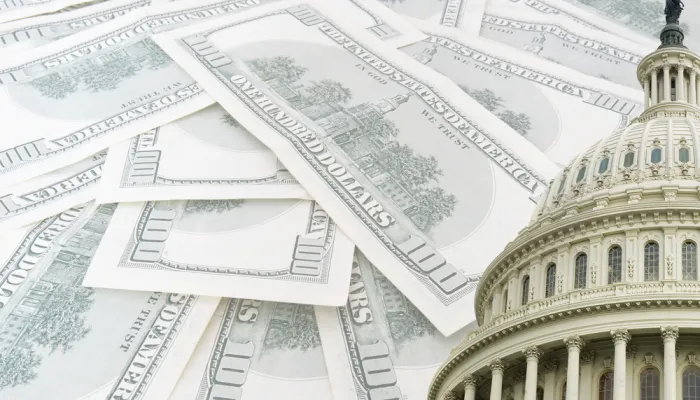Blue Dog Coalition Argues Against Misuse of New PAYGO Exemptions
The House of Representatives began the 117th Congress with a new rules package – H.Res.8. The package maintains the House Pay-As-You-Go (PAYGO) rule but creates two exemptions for COVID-19 and climate change. Specifically, the chair of the House Budget Committee can designate legislative measures to prevent, prepare for, or respond to the economic and public health consequences from the COVID-19 pandemic or climate change as having no net effect on budget surpluses or deficits. In practical terms, the Congressional Budget Office (CBO) would still score such measures but the measures would not technically violate the House PAYGO rule by increasing the deficit.
In response to this change, the Blue Dog Coalition sent a letter to House Budget Committee Chairman John Yarmuth (D-KY) calling for effective policing and enforcement of these exemptions' limited scope and warned that its members reserve the right to oppose any measure that's granted this exemption but is not designed to directly address climate change or the COVID-19 pandemic. They argue these exemptions should not morph into a gimmick to waive non-COVID and climate change legislation from PAYGO rules nor should they signal that high deficits and debt are inconsequential. Procedurally, major bills in the House are preceded by a vote on the rule that sets up the floor debate. This rule often waives House rules such as PAYGO. If members object to a PAYGO exemption or waiver, they can vote against the rule. If enough do, it would prevent the underlying bill from getting a vote.
In general, PAYGO seeks to prevent new legislation from increasing budget deficits. That is, if legislation subject to the PAYGO rule increases budget deficits through an increase in mandatory spending or a decrease in revenue (note: it does not apply to discretionary spending), its cost must be offset by spending reductions or revenue increases in other areas.
PAYGO has three variants: statutory PAYGO and individual House and Senate PAYGO rules. Statutory PAYGO enforcement occurs on an annual basis through a scorecard maintained by the Office of Management and Budget (OMB) that sums the effects of legislation enacted that year (read more details here and see the scorecard here) and theoretically reduces certain mandatory spending if legislation enacted in a given year increased deficits. In contrast, the House PAYGO rule applies to each bill, allowing members to raise a point of order to block a bill (though this can be overridden by a majority) if it would increase deficits over a six- or 11-year period. In practice, this right is often waived although members can still block a bill by voting against the waiver.
Ideally, there should be no exemptions to PAYGO except for emergencies and members should go on record through an individual vote on whether a bill should be designated as an emergency or otherwise waived. Emergencies should meet these 5 criteria: necessary, sudden, urgent, unforeseen, and not permanent. Responding to COVID-19 is obviously an emergency. Climate change is a significant issue with large potential future costs, but it is not unforeseen. Lawmakers have been aware of the issue and proposing solutions for decades. We should aspire to address climate change without leaving the next generation with the bill on top of already historically high deficits. Some climate change solutions can reduce the deficit (or pay for other spending) while reducing carbon. If lawmakers decide to increase the deficit to address climate change they ought to acknowledge the cost instead of exempting it from budget rules.
The new version of the House PAYGO rule is far preferable to repeal as some had pushed. The Committee for a Responsible Federal Budget applauds the Blue Dog Coalition for its commitment to fiscal responsibility and to maintaining and strengthening PAYGO as a check and balance against fiscally irresponsible policies.

